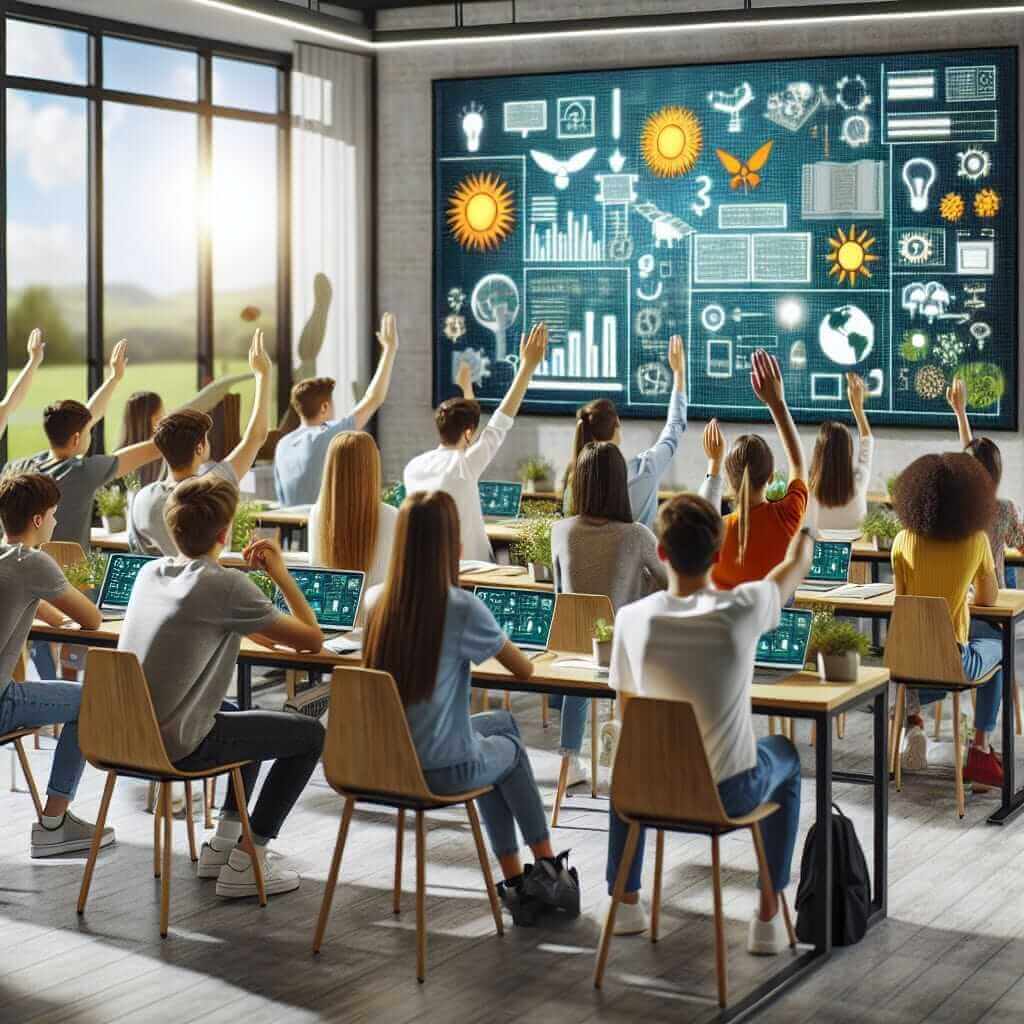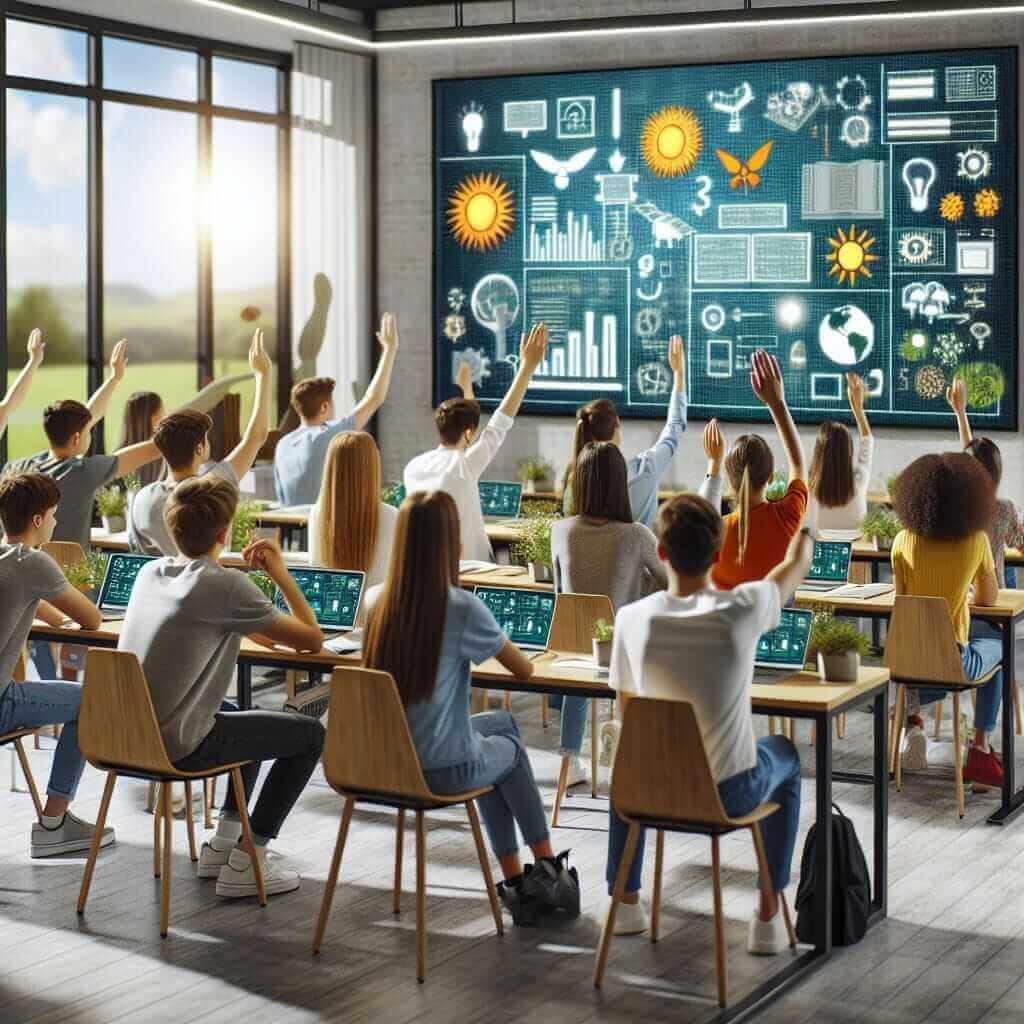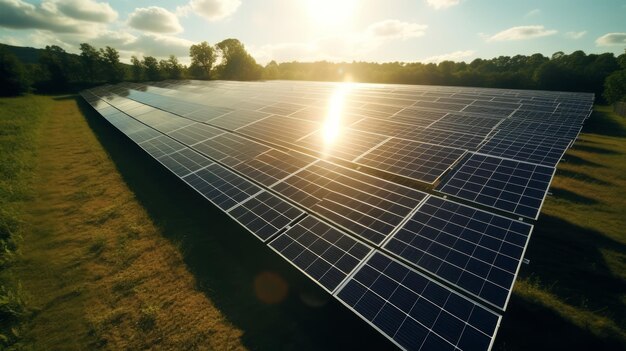
Empowering a Greener Tomorrow: The Crucial Role of Education in Fostering Sustainability
In an era defined by rapid environmental change, resource depletion, and growing social inequalities, the concept of sustainability has moved from a niche topic to a global imperative. But how do we get everyone on board? How do we inspire the necessary shifts in thinking, behavior, and policy to create a world that thrives for generations to come? The answer, unequivocally, lies in education.
Education is not just about memorizing facts; it’s about shaping minds, fostering critical thinking, and empowering individuals to become active participants in building a better future. When it comes to sustainability, education is the bedrock upon which awareness, innovation, and lasting change are built.
This comprehensive article will explore the profound role education plays in fostering sustainability, breaking down complex ideas into easy-to-understand concepts, and highlighting practical ways learning can drive us towards a more sustainable world.
What Exactly is Sustainability? A Simple Explanation
Before diving into education’s role, let’s make sure we’re all on the same page about what "sustainability" truly means. It’s more than just "being green" or recycling.
Think of sustainability as a three-legged stool:
- Environmental Protection: This leg focuses on protecting our planet’s natural resources and ecosystems. It means reducing pollution, conserving water and energy, protecting biodiversity (all the different plants and animals), and tackling climate change. We need a healthy planet to survive!
- Social Equity: This leg is about fairness and well-being for all people. It means ensuring everyone has access to basic needs like clean water, food, healthcare, and education. It also involves promoting human rights, equality, and justice, so no one is left behind.
- Economic Viability: This leg deals with creating an economy that supports human well-being without harming the environment. It’s about developing sustainable businesses, creating green jobs, and ensuring that economic activities can continue long-term without depleting resources or creating excessive waste.
In essence, sustainability is about meeting the needs of the present without compromising the ability of future generations to meet their own needs. It’s about finding a balance where people, planet, and prosperity can all flourish together, now and in the future.
Why is Education So Important for Sustainability? The Foundation of Change
Imagine trying to solve a puzzle without knowing what the final picture looks like or having all the pieces. That’s what tackling sustainability without education would be like. Education provides us with the knowledge, skills, and values needed to understand the puzzle, find its pieces, and put them together.
Here’s why education is absolutely crucial:
- It Builds Awareness: Many people simply aren’t aware of the environmental and social challenges we face, or how their daily actions contribute. Education shines a light on these issues.
- It Fosters Understanding: Beyond just awareness, education helps us understand the causes and effects of unsustainable practices. Why is deforestation bad? How does plastic pollution harm marine life? Education provides these crucial answers.
- It Inspires Action: Knowledge without action is limited. Education empowers individuals to make informed choices and take meaningful steps towards sustainability in their personal lives, communities, and workplaces.
- It Develops Solutions: The challenges of sustainability are complex. Education encourages critical thinking, problem-solving, and innovation – essential skills for developing new technologies, policies, and behaviors that lead to a more sustainable future.
- It Shapes Values: Sustainability isn’t just about facts; it’s about caring for our planet and each other. Education helps cultivate values like responsibility, empathy, respect for nature, and a sense of global citizenship.
This concept is so vital that the United Nations developed a global initiative called Education for Sustainable Development (ESD). ESD aims to equip learners with the knowledge, skills, values, and attitudes to address the interconnected global challenges we face, including climate change, biodiversity loss, poverty, and inequality.
How Education Fosters Sustainability: Specific Pathways
Education doesn’t just broadly "help" with sustainability; it contributes in several distinct and powerful ways:
1. Building Awareness and Knowledge
The first step towards change is understanding the problem. Education provides the foundational knowledge about environmental science, social justice, and economic systems.
- Understanding Ecosystems: Learning how forests, oceans, and wetlands function and why they are vital for life on Earth.
- Climate Change Literacy: Understanding the science behind global warming, its causes (like greenhouse gases), and its potential impacts (rising sea levels, extreme weather).
- Resource Management: Knowing where our water, food, and energy come from, and why conserving them is important.
- Social Justice Issues: Learning about inequalities, human rights, and how social well-being connects to environmental health.
Example: A child learning about the water cycle understands why saving water at home is important. An adult learning about fast fashion understands the social and environmental cost of cheap clothing.
2. Developing Critical Thinking and Problem-Solving Skills
Sustainability challenges are complex, with no easy answers. Education equips individuals with the ability to analyze problems, evaluate information, and think creatively to find solutions.
- Analyzing Information: Learning to distinguish reliable sources from misinformation about environmental issues.
- Identifying Root Causes: Moving beyond surface-level problems to understand the underlying reasons for unsustainability. For instance, not just seeing plastic pollution, but understanding the systems of production and consumption that create it.
- Scenario Planning: Thinking about the long-term consequences of actions and decisions.
- Designing Solutions: Brainstorming innovative ways to reduce waste, conserve energy, or create more equitable communities.
Example: Students designing a school recycling program, not just collecting bottles, but thinking about how to reduce waste overall, what materials can be reused, and how to educate others.
3. Shaping Values and Mindsets
Sustainability is as much about our attitudes and beliefs as it is about facts. Education helps cultivate a sustainability mindset, fostering values that guide responsible behavior.
- Empathy and Compassion: Developing a sense of care for other people (especially vulnerable communities) and for all living things.
- Responsibility: Understanding our individual and collective responsibility to protect the planet and ensure a just society.
- Interconnectedness: Recognizing that all systems – environmental, social, and economic – are linked, and actions in one area affect others.
- Future-Oriented Thinking: Shifting from short-term gains to considering the long-term impacts of decisions on future generations.
- Optimism and Agency: Believing that positive change is possible and that one’s actions can make a difference.
Example: Learning about indigenous cultures’ deep respect for nature can inspire a similar sense of stewardship in students. Engaging in community service projects fosters empathy and a desire for social justice.
4. Encouraging Action and Innovation (Green Skills)
Education translates knowledge and values into tangible action. It helps people acquire the "green skills" needed for a sustainable economy and lifestyle.
- Behavioral Change: Encouraging practical habits like reducing consumption, reusing items, recycling, composting, saving energy, and choosing sustainable products.
- Advocacy and Participation: Empowering individuals to speak up for environmental protection and social justice, participate in community initiatives, and influence policy.
- Green Job Skills: Training for careers in renewable energy, sustainable agriculture, ecological restoration, waste management, environmental consulting, and other green sectors.
- Entrepreneurship: Inspiring the creation of sustainable businesses and innovative solutions to environmental and social problems.
Example: Vocational training programs teaching students how to install solar panels or design energy-efficient buildings. Community workshops on starting an urban garden or repairing electronics instead of replacing them.
5. Promoting Collaboration and Global Citizenship
Sustainability is a global challenge that requires global solutions. Education fosters a sense of shared responsibility and the ability to work with others across cultures and borders.
- Understanding Global Interdependencies: Recognizing how local actions can have global impacts (e.g., pollution from one country affecting another).
- Cross-Cultural Communication: Learning to communicate and collaborate with people from diverse backgrounds on shared sustainability goals.
- Respect for Diversity: Appreciating different perspectives and approaches to sustainability from around the world.
- Collective Action: Understanding that many sustainability challenges can only be solved through coordinated efforts at local, national, and international levels.
Example: Students from different countries collaborating on a virtual project to design a sustainable city. Community leaders working with international NGOs on conservation efforts.
Education for Sustainability at Different Levels
Sustainability education isn’t confined to a single age group or institution. It’s a lifelong journey that happens in various settings:
1. Early Childhood and Primary Education
- Focus: Laying the groundwork for environmental awareness and responsible behavior through play, nature exploration, and simple actions.
- Activities: School gardens, recycling programs, learning about animals and plants, stories about nature, reducing waste in lunchboxes.
- Outcome: Developing a love for nature, basic understanding of ecological principles, and habits of care and conservation.
2. Secondary Education
- Focus: Integrating sustainability into various subjects, fostering critical thinking, and exploring the interconnectedness of environmental, social, and economic issues.
- Activities: Science projects on renewable energy, history lessons on environmental movements, debates on ethical consumption, community service projects, developing school-wide sustainability initiatives.
- Outcome: Deeper understanding of complex sustainability issues, ability to analyze information, and motivation to take informed action.
3. Higher Education (Colleges and Universities)
- Focus: Advanced research, specialized training, developing innovative solutions, and preparing future leaders and professionals.
- Activities: Degrees in environmental science, sustainable engineering, policy studies, urban planning; campus sustainability initiatives (e.g., green buildings, waste reduction); interdisciplinary research centers; community outreach programs.
- Outcome: Graduates with specialized "green skills," researchers pushing the boundaries of sustainable solutions, and leaders equipped to drive systemic change.
4. Lifelong Learning and Community Education
- Focus: Empowering adults and communities to adopt sustainable practices, reskill for green jobs, and participate in local and global sustainability efforts.
- Activities: Public workshops on composting, energy efficiency, or sustainable gardening; vocational training for solar panel installation; online courses on climate change; community clean-up drives; citizen science projects.
- Outcome: Informed citizens making sustainable choices, a workforce prepared for the green economy, and communities actively building resilience.
Challenges and Opportunities in Sustainability Education
While the importance of education for sustainability is clear, there are challenges to overcome:
Challenges:
- Curriculum Integration: How to effectively weave sustainability themes into existing subjects without overwhelming teachers or students.
- Teacher Training: Equipping educators with the knowledge, skills, and confidence to teach complex sustainability topics.
- Funding and Resources: Ensuring schools and communities have the necessary materials, facilities, and support for hands-on learning experiences.
- Resistance to Change: Overcoming apathy, skepticism, or entrenched habits that hinder the adoption of sustainable practices.
- Measuring Impact: It can be challenging to quantify the long-term impact of education on sustainability outcomes.
Opportunities:
- Digital Learning: Online resources, virtual reality, and interactive platforms can make sustainability education accessible and engaging for a wider audience.
- Experiential Learning: Hands-on projects, field trips, and community engagement provide powerful learning experiences that foster deeper understanding and commitment.
- Global Collaboration: International initiatives and shared best practices can accelerate the adoption of effective sustainability education programs worldwide.
- Youth Engagement: Young people are often passionate advocates for sustainability, providing a powerful driving force for change.
- Growing Public Awareness: As the impacts of climate change and environmental degradation become more evident, public demand for sustainability education is increasing.
Conclusion: Educating Our Way to a Sustainable Future
The journey towards a truly sustainable world is long and complex, but it is a journey we must embark on together. At its heart, this journey is about learning – learning about our planet, about each other, and about how to live in harmony with both.
Education is not just one piece of the sustainability puzzle; it is the entire framework upon which the puzzle is assembled. It builds awareness, fosters critical thinking, shapes values, inspires action, and encourages collaboration. From the earliest lessons in primary school to advanced research at universities and lifelong learning in communities, education empowers individuals to understand, adapt, and innovate.
By investing in robust, comprehensive, and accessible sustainability education for everyone, everywhere, we are not just teaching about a greener future; we are actively building it. It is through knowledge, empathy, and collective action, fueled by powerful educational experiences, that we can truly empower a greener, more equitable, and sustainable tomorrow for all.
What are your thoughts? How has education shaped your understanding of sustainability? Share your insights and ideas in the comments below!



Post Comment